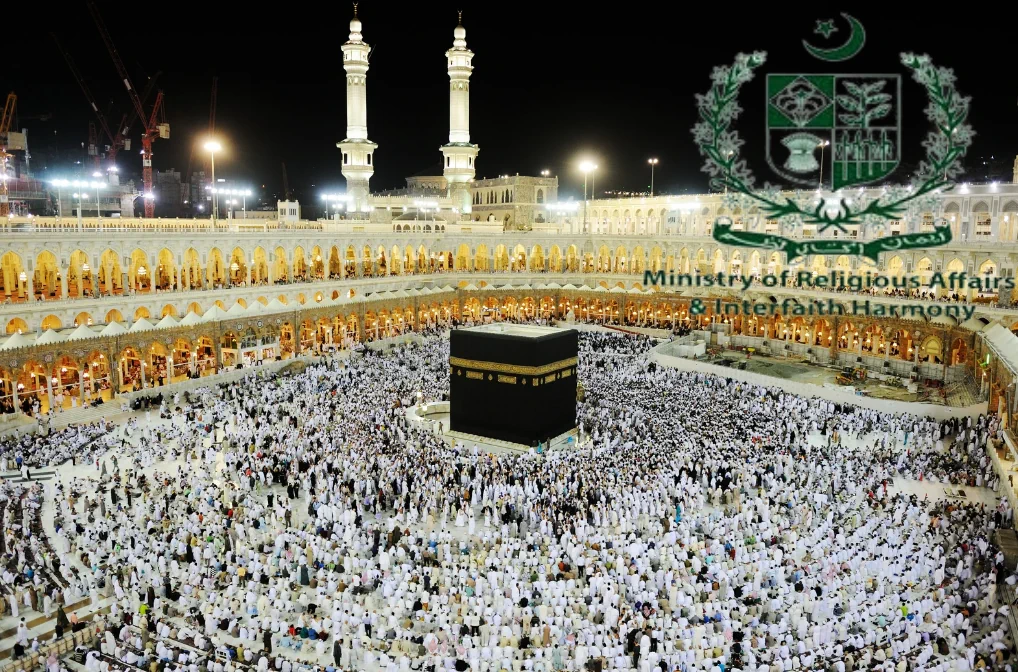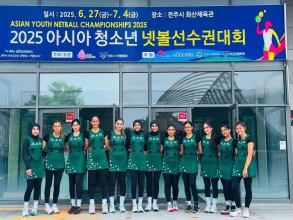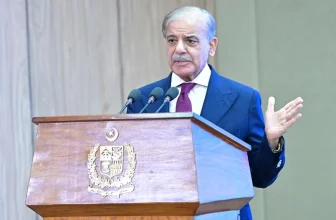Pakistan Hajj Policy 2025 announced for 179,210 pilgrims with revised costs, payment plans, and new facilities

The Ministry of Religious Affairs announced Pakistan’s Hajj Policy 2025 on Monday, detailing costs, application procedures, and an expanded installment plan for Pakistani pilgrims. Federal Minister for Religious Affairs, Chaudhry Salik Hussain, outlined the policy’s key aspects in a press conference in Islamabad, emphasizing the government’s efforts to make the pilgrimage more accessible and streamlined for all participants.
Key Details of the Hajj Policy 2025
| Total Hajj Quota | 179,210 (89,605 each for government and private schemes) |
| Additional Seats | 5,000 for government sponsorship; 30,000 for private HGOs |
| Application Period | November 18 – December 3, 2024; balloting on December 6 |
| Sponsorship Scheme | First-come, first-served; no balloting; requires foreign exchange via banks |
| Estimated Cost | Rs1,075,000 – Rs1,175,000 + Rs55,000 for sacrificial offering |
| Installment Plan | Rs200,000 with application, Rs400,000 after balloting, balance by February 10, 2025 |
| Refund Policy | Deductions apply for cancellations after balloting; no refund after February 10, except in cases of death |
| Accommodation Options | Double-bed (extra Rs220,000) and triple-bed (extra Rs75,000) |
| Nazim Role | New administrator position for each 100 pilgrims |
| Digital Support | Hajj Management App and training sessions for pilgrims |
| Priority Groups | Priority for last year’s unsuccessful applicants and hardship cases (1,000 seats); EOBI and Workers Fund (300) |
| Immigration Facilitation | “Road to Makkah” facility at Islamabad and Karachi airports |
| Health Measures | Under 12s not allowed; increased compensation (Rs2 million for death, Rs1 million for serious injuries) |
The Hajj quota for Pakistani pilgrims will be evenly split between government and private schemes, with 89,605 seats allocated to each. An additional 5,000 seats are reserved for the government’s sponsorship scheme, and 30,000 seats for private Hajj Group Organizers (HGOs) under the sponsorship program. The total quota for Pakistani pilgrims is set at 179,210.
Also Read:
Applications for the government Hajj scheme will be open from November 18 to December 3, 2024, with balloting scheduled for December 6. However, the government sponsorship scheme will operate on a “first come, first served” basis without balloting, requiring applicants to send foreign exchange through official banking channels. The funds raised through this program will be used exclusively for Hajj-related expenses in Saudi Arabia.
Hajj Costs and Installment Payments
The estimated cost for the 2025 pilgrimage ranges from Rs1,075,000 to Rs1,175,000, with an additional Rs55,000 for the sacrificial offering. The Ministry has introduced a payment plan to make this cost more manageable. Pilgrims are required to submit an initial payment of Rs200,000 with their application, followed by a second installment of Rs400,000 within 10 days of balloting. The remaining balance must be paid by February 10, 2025.
The policy specifies refund terms in case of cancellations: Rs50,000 will be deducted if the first installment is refunded after balloting, and Rs200,000 will be deducted if the final installment is unpaid. No refunds will be issued after February 10, except in cases of the applicant’s death, where deductions will not apply.
For those seeking accommodations in Makkah, the government offers options for double-bed and triple-bed arrangements, requiring an additional Rs220,000 and Rs75,000, respectively.
Enhanced Support and New Facilities
To assist pilgrims, the Ministry introduced a new position, Nazim (administrator), with one appointed for each group of 100 pilgrims. Selected from welfare staff, the Nazim will be responsible for managing the needs of their assigned group.
In addition, a Hajj Management App has been developed to provide digital support for pilgrims, offering access to necessary information and real-time updates. Training sessions will also be arranged for pilgrims to familiarize them with the process.
Priority Groups and Exemptions
Preference will be given to pilgrims who were unsuccessful in last year’s balloting, while special allocations have been made for those facing hardships, with 1,000 seats reserved for such cases. Another 300 seats are allocated for low-income workers registered with the Employees Old-Age Benefits Institution (EOBI) or the Workers Welfare Fund.
The “Road to Makkah” facility will be available at Islamabad and Karachi international airports to expedite immigration processes for pilgrims.
Health and Safety Measures
In line with Saudi regulations, children under 12 years are prohibited from accompanying pilgrims due to concerns over extreme heat and logistical challenges. The policy also enhances compensation for pilgrims, with coverage for accidental death increased to Rs2 million and compensation for serious injuries raised to Rs1 million.
Efforts for Pakistani Expatriates
For Pakistani expatriates in Europe and Canada, where Hajj costs are considerably higher—reportedly around $20,000—discussions with Saudi authorities are ongoing to incorporate unused expatriate quotas into the general Pakistani allocation, preventing wastage and maximizing participation from Pakistan.
Read all the Breaking News Live on pakistantimes.com and Get Latest English News & Updates from Pakistan Times. Follow us on Whatsapp channel for more.









